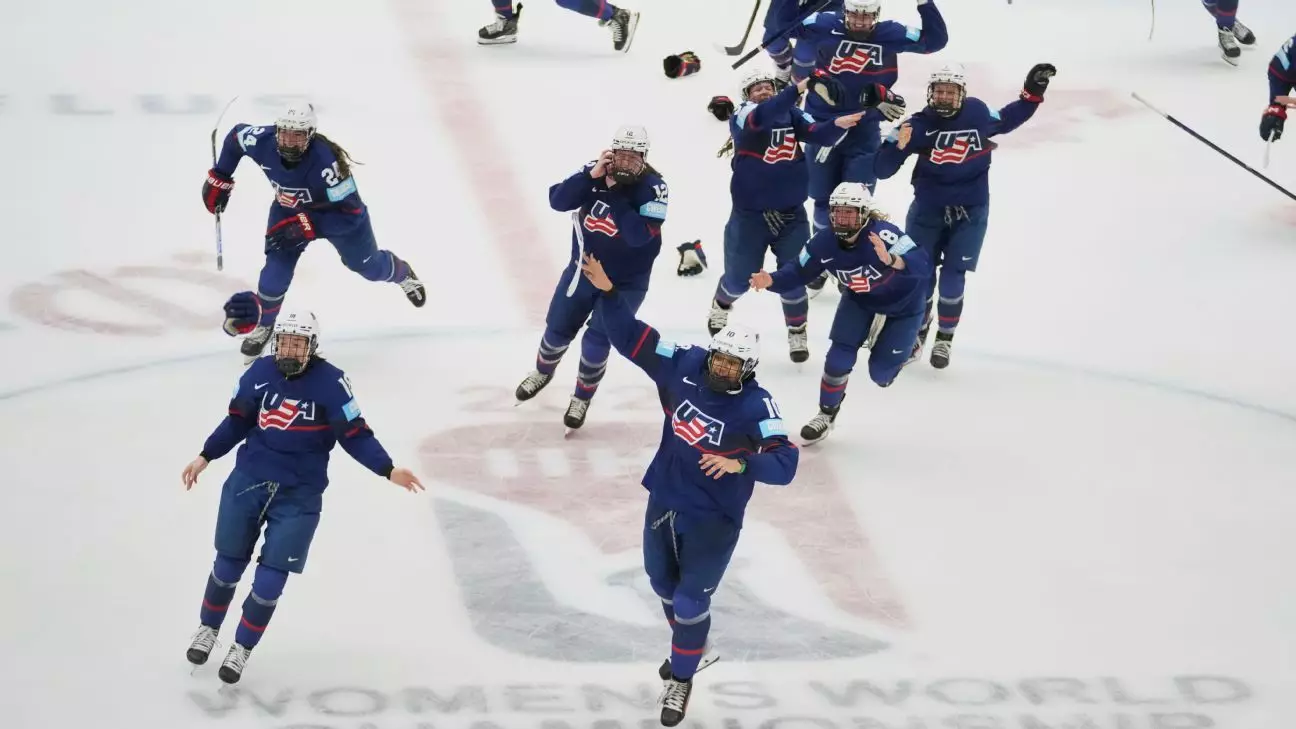In a captivating finale that will be etched in the annals of women’s hockey, Tessa Janecke became an American hero, clinching the decisive goal in overtime against defending champions Canada at the women’s ice hockey world championship. With just under three minutes left in the extra period, Janecke demonstrated poise and precision, sending a beautifully executed shot into the open left side of the net. This golden moment not only sealed the victory for the U.S. but also crowned them with their eleventh world title. It was a thrilling conclusion that reflected the intense rivalry between these two teams, which has defined women’s hockey for decades.
A Battle of Titans
The match, held in České Budějovice, was a microcosm of what makes women’s hockey so enthralling—the relentless pursuit of excellence and the unyielding spirit of competition. Both teams demonstrated remarkable skill and tenacity; Canada, a nation with a rich hockey legacy, was in pursuit of its fourteenth gold medal. U.S. goalie Gwyneth Philips, after the nail-biting finish, described her emotions with the phrase “shock and awe,” succinctly capturing the rollercoaster of feelings experienced by athletes at high-stakes moments. The U.S. team’s journey through the tournament had been nothing short of spectacular, showcasing their relentless determination and strategic prowess.
Player Performances and Strategic Mastery
While Janecke’s winning shot stole the spotlight, the road to victory was paved by numerous contributions. Abbey Murphy and Taylor Heise not only scored goals but also mounted critical assists that underpinned the American offensive strategies. Their ability to capitalize on scoring opportunities showcased a blend of individual talent and cohesive teamwork. This was emphasized when Heise intervened at a pivotal moment, intercepting a Canadian pass at the blue line, which ultimately led to Janecke’s momentous goal. Such strategic depth highlights the importance of anticipation and quick decision-making in competitive sports.
Similarly, Canada’s players, including the talented Sarah Fillier, fought valiantly, with Fillier’s equalizing goal forcing overtime and keeping the championship’s destiny in suspense. This tug-of-war, characterized by brilliant plays on both sides, exemplified the high level of competition and the passion that these athletes bring to the ice. The tense exchanges and fluctuations in momentum built an atmosphere rivaled only by the most intense rivalries in sports.
Legacy of Players
The championship also served as a testament to individual legacies, particularly that of U.S. captain Hilary Knight, who further solidified her status in the world of women’s sports. With her assist in the final game, she raised her career total at the World Championships to an extraordinary 120 points—an achievement that cements her as a pivotal figure in women’s hockey history. Similarly, Canada’s Marie-Philip Poulin, known as “Captain Clutch,” once again demonstrated her prowess as she topped the tournament scoring table, reaffirming her elite status.
For both teams, the implications of this championship extend beyond the present. As the countdown to the Milan Winter Games in February 2026 begins, each player is likely to reflect on the lessons learned during this fierce competition. The narrative is rich with intrigue; the U.S. soaring in confidence after two recent world championship wins, while Canada, the reigning Olympic champion, faces new challenges as they seek to reclaim their dominance on the global stage.
The Road Ahead
As preparation ramps up for future tournaments, the rivalry between Canada and the United States promises only to intensify. With such promising talent and fierce competitive spirits, fans can anticipate more thrilling encounters in the years to come. The women’s game is not merely about titles; it’s about passion, growth, and the ongoing quest for equality in sports. Each player stepping onto the ice is part of a larger narrative, one that inspires young athletes and offers hope for broader acceptance and recognition of women in competitive sports.
Furthermore, the championship’s outcome may spur discussions around investment in women’s sports. Success stories like the U.S. team’s victory can galvanize support for greater funding and resources, shining a light on the talent that thrives in this realm. As women’s hockey continues to grow, so does the collective responsibility to foster an environment where future generations can build upon the legacies of the players before them, creating a brighter, more inclusive future for all athletes.


Leave a Reply